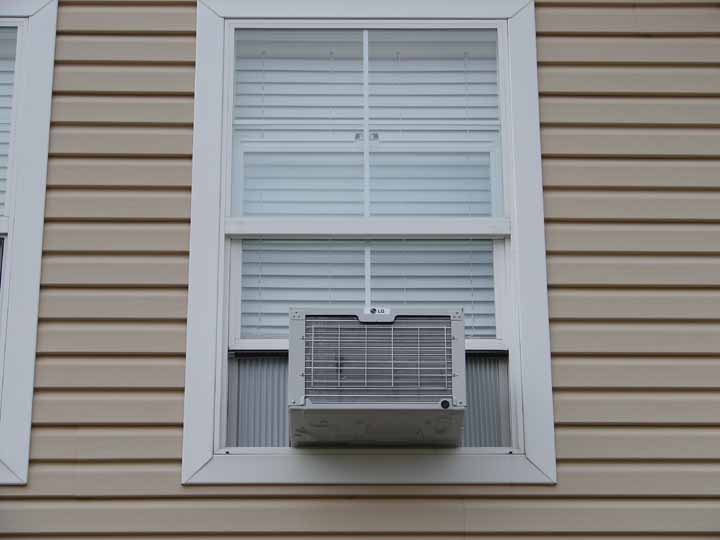Guest Blogger, Nancy Parker
In the summer time having a few window air conditioning units can seem like a godsend. However. when winter time comes those same units can be a great hole in your home’s winter wardrobe. If you have air conditioning window units then you may be letting unnecessary cold in and your hard earned heat out. Ultimately, raising your bills. Here are some winter heating tips to keep your air conditioners from making your heating bill skyrocket:
Store Them Away
The first thing that is recommended for window air conditioning units during the winter is to store them away. Removing them from their place in the window should not take much effort. Many window units are easy to install and uninstall. However if that should prove too difficult, or you live in a climate with a very short winter, you do have other options.
Keep in mind that a closed window is better for heat retention than one with any kind of opening. Even when filled with the air conditioner. You should also keep in mind that if you do remove the air conditioners you should only store them in an upright position. Remember how they were stored in the window and store them exactly like that. Storing them any other way can lead to damage and a broken air conditioner. So when summer comes, you may not have air conditioning when you need it. Wrap or box the unit to prevent mice or other pests from damaging it. And store it somewhere it will not be exposed to the elements
Cover Them Up
If you do not remove the air conditioners than you will have to cover them up. The outside of the air conditioner should be wrapped to protect it from freezing and from becoming damaged during storms or from ice buildup. Ice or snow can build up on the outside of an air conditioner. And create an imbalance that can lead to bending, cracking, or even breaking the window as the weight pulls the unit out. Make sure you keep the unit from becoming heavy with build up during the winter months. On the inside of your home make sure the vent is closed to prevent air from blowing in through the unit.
Many units offer both an outside venting option and an inside recycling option. Make sure you have the vent closed. You should also cover the inside part of the air conditioning unit. Including the side panels that hold the unit in place and secure it to the window. These side panels are usually thin plastic and can be a large spot for cold air to come in through. Sealants often freeze in the winter and crack so they form holes. Instead, cover the entire surface of the unit. Including the panels and the window edges around it with something thick and impermeable. A thick blanket, a towel, or even a piece of cardboard or insulation can be used to winterize your air conditioning unit.
Seal the Edges
Last but not least; make sure the edges are sealed tightly to prevent leaks of both air and water. Snow, sleet and rain can get in through cracks and cause damage as well as uncomfortable coldness. The underside of the air conditioning unit is often only sealed by the unit’s own weight. During the winter snow build up under the unit can push it up, creating a crack the moisture, cold and pests can enter through. Seal all around the unit with something sturdy like foam or sealing tape. They even make special soft seals for air conditioning units.
Keep in mind that the window itself will need to be sealed also. The crack where the bottom and top half unite is often left open by the presence of a window unit. This needs to be sealed both to prevent air from getting through and to prevent cracking in the case of a storm. An open window is not as strong as a closed one and can bang together and break. Make sure all edges of the window unit, the window, and the windowsill are properly sealed. Examine the panels to make sure they are sealed as well.
As you can see, window air condition units can be problematic during the winter. However it is not impossible to leave them in place and still have an energy efficient home. It just takes some planning and preparation to make sure your air conditioning units are not causing your home to lose heat during the winter.
Author Bio: Nancy Parker is a regular contributor to www.enannysource.com and she loves to write about wide range of subjects like health, Parenting, Child Care, Babysitting, nanny background check tips etc. You can reach her @ nancy.parker015 @ gmail.com


